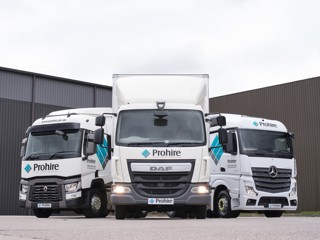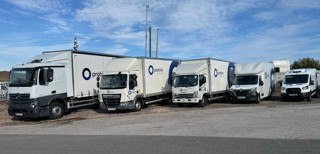Thrifty has been keen to adapt to the evolving market place, and while organisations that run fleets coped with the challenges of the recession, the company came up with alternatives to standard rental packages.
“We launched our Flexi Fleet product 18 months ago and it has proved incredibly successful as a standalone product,” says Hancock.
“But we are also seeing corporate customers taking vehicles for much longer. The length of rental has increased dramatically, with the average duration increasing from just over 14 days to just over 25 days.
“People have been more risk averse in their commitment and have taken a greater interest in more flexible products.”
The success of products like Flexi Fleet, where vehicles can be rented for up to 26 weeks, has been helped by timing.
Hancock believes the way Thrifty is set up in the UK, with no need to consult parent companies when it comes to important decisions, has helped it respond better to customers, and is building on its success.
It announced recently that Flexi Fleet is being offered to Affinity Leasing customers to bridge the gap caused by delays in new vehicle supply as a result of the Japanese earthquake and tsunami, or other unforeseen interruptions on the part of the user.
Affinity Leasing says up to 70% of its customers might need the temporary use of a car before their long-term lease vehicle is available.
It confirmed supply from Japan had been one of the causes, but European factory shutdowns in summer can also result in short delays or when customers provide requests at short notice. There is a Thrifty link on the Affinity Leasing website that provides a selection of quotes.
Hancock acknowledges an element of good fortune in the knock-on effects to all kinds of manufacturing, particularly cars, following the earthquake and tsunami in Japan.
He says a number of orders were placed before much of the impact on component suppliers was felt.
Hancock has an understanding of some of the ongoing challenges faced by car manufacturers during the past 12 months that have continued to put them under pressure during the slow economic recovery in Europe.
“Many of our manufacturer partners are finding it difficult with currency fluctuation affecting margins in the UK and we have been sympathetic to that,” he said.
Thrifty appears to have weathered the tough challenges presented by the credit crunch well despite the difficulties faced by some companies in the vehicle rental industry.
However, Hancock issued a warning that smaller companies could still face tough times ahead.
“We’re in a very good place at the moment with revenue growing in both corporate and leisure markets,” he says.
“Although funding has become more liquid since the credit crunch, lenders are still looking for less risk than before and this has made obtaining credit more difficult for smaller organisations.
“The strong will get stronger.”
Staff take to bikes to cut CO2 emissions
Thrifty is taking part in the ‘Boris Bikes’ scheme at its Tower Bridge branch, with many employees using the bicycles instead of cars to complete journeys when delivering or collecting rental vehicles.
As well as reducing carbon emissions and pollution in the city, Thrifty has seen additional benefits, including less cash spent on fuel and congestion charges.
Employees have also found it is quicker to cycle around London than drive.
The company is witnessing a greater appetite for hiring greener vehicles from corporate customers, and it believes it has been in a prime position to help meet these aspirations.
Roger Hancock says: “In the past 18 months we have been able to reduce CO2 levels by 17g/km and this is in spite of an increased prestige fleet, 4x4 and automatic transmission models. We now have an average CO2 emission of 139g/km across our car fleet.
“One of the reasons we have been able to achieve that is because we take the residual value risk and buy the vehicles. We have the flexibility of choice that enables us to run a greener fleet.”
Vehicle manufacturers have played their part in helping Thrifty achieve this goal with significant advances in low-CO2 technology being introduced during this period.
Hancock says it has allowed the company to take advantage of customers wanting lower CO2 vehicles which fit in with their own organisations’ environmental policies.
“A number of the corporations we engage with state average CO2 targets and we are in a position to help them achieve that,” he says. “We find an increasing number of customers coming to us with those requests.”
Thrifty is also involved with charities, with donations being taken from corporate and leisure rentals.
It currently supports Help for Heroes and Hospiscare in Exeter, and expects to be the largest supporter of that charity. Both receive 50p from each vehicle rental.
Factfile
Company Thrifty Car & Van Rental
Managing director Roger Hancock
Number of UK locations 85
Fleet size 10,000 cars, 4,500 vans
Age/mileage at defleet Cars – 205 days/9,650 miles Vans – 520 days/21,500 miles
Average age of cars on fleet Four months



















Login to comment
Comments
No comments have been made yet.